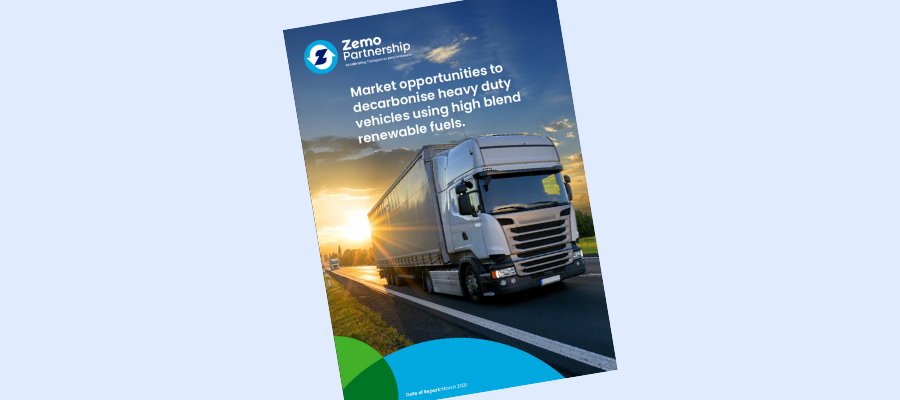🕒 Article read time: 3 minutes
Renewable fuels could drastically slash emissions from truck operations by 2030, says report

The widespread adoption of high blend renewable fuels (HBRF) could rapidly accelerate decarbonisation in road transport, according to a new study by Zemo Partnership (formerly LowCVP).
The report, which follows on from the announcement to introduce E10 into the UK from September, argues that even greater greenhouse gas (GHG) savings can be realised with an aggressive policy framework for HBRF in heavy duty vehicles currently running on diesel and natural gas.
FUEL THAT GOES THE DISTANCE
The study highlights how a near-term policy to encourage HBRF can complement and enhance the long-term electrification strategy for transport.
A key recommendation of the report is for a robust and transparent Assurance Scheme to provide operators with confidence in the credentials of the renewable fuels they buy. Zemo Partnership has said that its new Renewable Fuels Assurance Scheme and declaration certificate have been developed in parallel and will be launching soon.
Currently, there is uncertainty over which zero emission technologies will be commercially viable for larger, long-range heavy vehicles. Drastically reducing GHG emissions from these heavier vehicles, particularly over the next decade when conventional fuel use will continue to be widespread, remains a key objective as the UK strives to achieve net zero.
MAJOR WELL-TO-WHEEL GHG REDUCTIONS
Renewable fuels, which can demonstrate over 80% well-to-wheel reductions in GHG emissions, could also help ensure that the UK meets the Fourth Carbon Budget (2023-27), Zemo Partnership says.
Significant opportunities for sustainable, renewable fuel adoption by heavy duty vehicles have been highlighted by the HBRF study, particularly for trucks and coaches which are currently responsible for around 5% of the UK’s total GHG emissions.
The report states that with a market average of 30% HBRF used in place of fossil fuels (diesel and natural gas) by 2030, the sector could save an additional 46m tonnes in GHG emissions over the next decade, with savings continuing to 2050. As the heaviest vehicles with the longest journey profiles produce the most GHG emissions, they also represent the segment with the biggest opportunities.
IDENTIFYING BARRIERS TO ADOPTION
Covering biodiesel, hydrotreated vegetable oil and biomethane, the report identifies the barriers to adoption and the GHG-saving opportunities available. These include limitations in vehicle manufacturers’ engine compatibility and warranty. Logistics UK’s members do have concerns that the full extent of the barriers have not been fully considered and the consequences of adopting higher fuel blends can be both challenging and costly. Logistics UK will continue to engage on this issue.
KEY POLICY INTERVENTIONS
The report identifiedsome policy interventions which could encourage HBRF uptake including: increasing the 2023 Renewable Transport Fuel Obligation (RTFO) target and raising awareness of the GHG emissions savings and sustainability performance of renewable fuels.
“We’re now on a trajectory for net zero emissions transport by 2050,” said Gloria Esposito, Zemo Partnership’s Head of Sustainability, “but our impact on the climate is what matters and action in this area can accelerate GHG emissions cuts over the next 30 years. If we can decarbonise the fuels we’ll be using until we can achieve full electrification across the vehicle fleet, we can minimise the impact of emissions from road transport on our way to zero.”
*www.logistics.org.uk/campaigns/environment
Published On: 25/03/2021 17:00:59

Comments Section
If you are a Logistics UK member login to add comments.